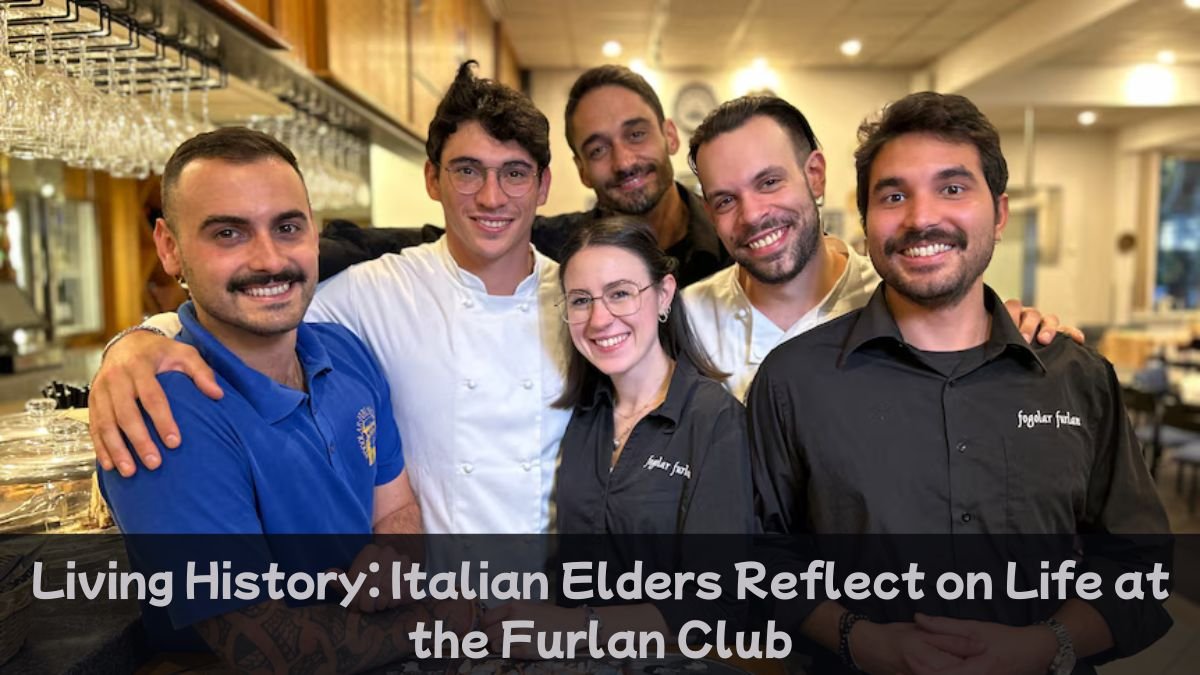In the quiet streets of Thornbury stands a building that is not just a brick and mortar structure, but a living history—the Furlan Club. It is not just a community centre, but a repository of thousands of emotions and experiences that the Italian immigrants who arrived in Australia years ago carried in their hearts. And when that history is narrated by the elders here—who are eyewitnesses to these stories—they are not just words, but turn into cultural heritage.
From Italy to Australia: A Journey Full of Dreams
When large numbers of people from the Friuli region of Italy came to Australia in the 1950s and 1960s, they had a dream in mind—a better life, work, and a secure future for their children. They brought with them not just a suitcase, but traditions, language, songs and a way of life. The Furlan Club was built on the foundation of these dreams.
Thornbury resident Luigi Fabbri, 89, recalls:
“When I came to Melbourne in 1954, it was cold, I didn’t know the language, but there was a warmth in my heart—to find my people.”
The Furlan Club: A home in a faraway land
Once established, the Furlan Club became a place for the expat community to sit together and experience Italy. The accordion playing in the halls, the aroma of traditional Friuli cuisine, and the echo of the mother tongue—all transformed into a collective cultural refuge.
Where the elders have vivid memories
“Every Sunday there was lunch at the club. We would get the children dressed up, the women would make pasta and the men would bring wine. These moments are history now, but they are alive in our hearts,” says 80-year-old Maria Bianchi.
The Furlan Club was not just a social venue, but a place where generations came together, exchanged traditions and found new life.
The pulse of folklore and festivals
The “Fogolâr Furlan” festival, La Befana, Carnivale, and other traditional festivals held at the Furlan Club still bring a sparkle to the eyes of the elderly. Through folk songs, they relive the streets, hills, and lost childhood of their village.
Giovanni Rossi says,
“We used to sing ‘Stelutis Alpinis’—the song that reminds us of the mountains and the soldiers. Singing that song here in Melbourne, we could smell the soil of our country.”
Beyond the building—a soul
The pictures on the walls of the club, the old Friuli flags hanging on the wall, and the laughter that resonates in the hall all show that this is not just a building, but a soul.
“Every corner of the club speaks. It says we were there, we struggled, and we built something that will connect generations to come,” says Elena Tonetti, 90.
Communicating with the new generation: A bridge to heritage
The club’s membership has been declining over time. Younger generations are no longer as involved as they used to be. But the elders believe the place is still relevant—only the way of communicating has changed. Social media, digital archives, and storytelling sessions can connect today’s generation to this heritage.
The pandemic and the changing social landscape
The club’s activities came to a halt during the COVID-19 pandemic. But as life returned to normal, the club started Zoom meetings, cultural webinars, and online food classes for the elderly. This proves that tradition knows how to adapt to changing times.
Concerns about the future: Will it all survive?
Some elders are concerned that the legacy of the Furlan Club will be lost to builders and development plans. Many buildings have already closed or been converted into cafes. So it is important that cultural spaces like this one receive protection—at the legal, social, and economic levels.
Documentation initiatives
Local organizations are now working to preserve the experiences of the elders through audio recordings, video interviews, and writing projects. These initiatives ensure that their voices can be heard in the future.
Conclusion
The Furlan Club is a symbol of cultural identity, will to live, and social unity. Its walls echo with the voices of the elders who made a strange land their home. These elders are not just pages of history, but a living book that must be read, understood, and carried forward.
